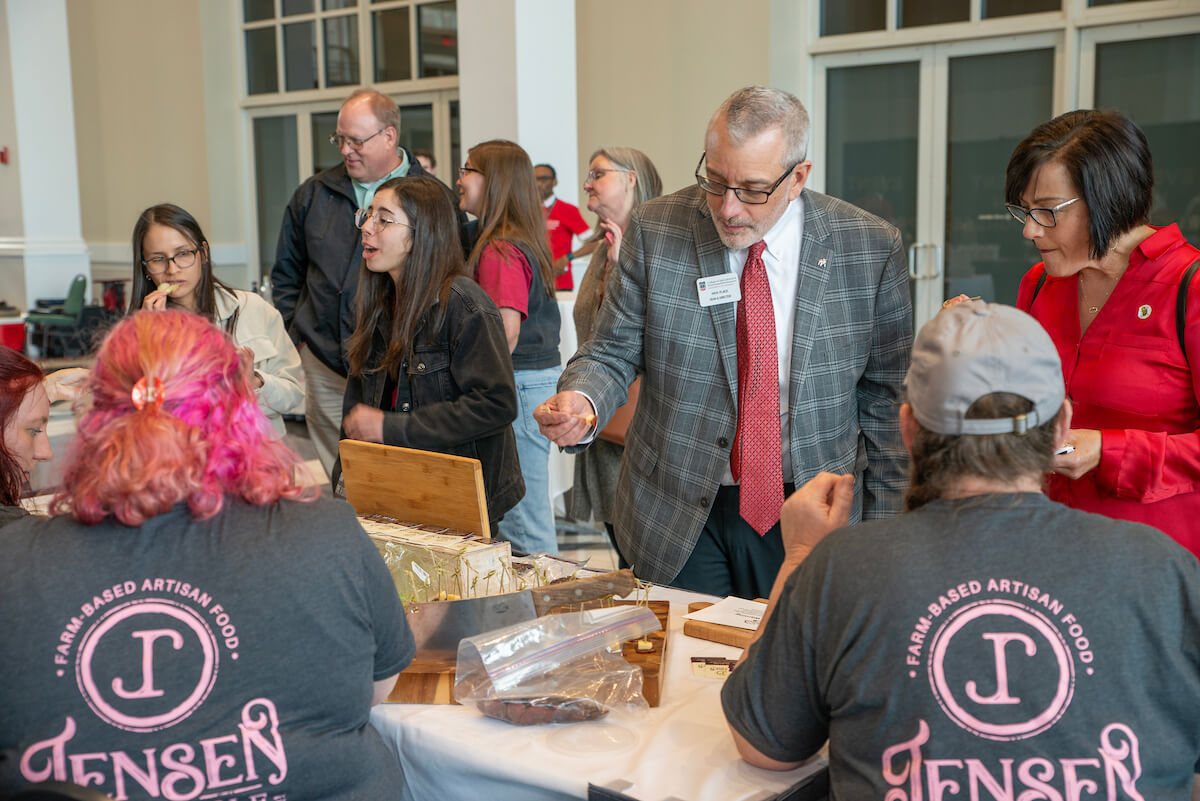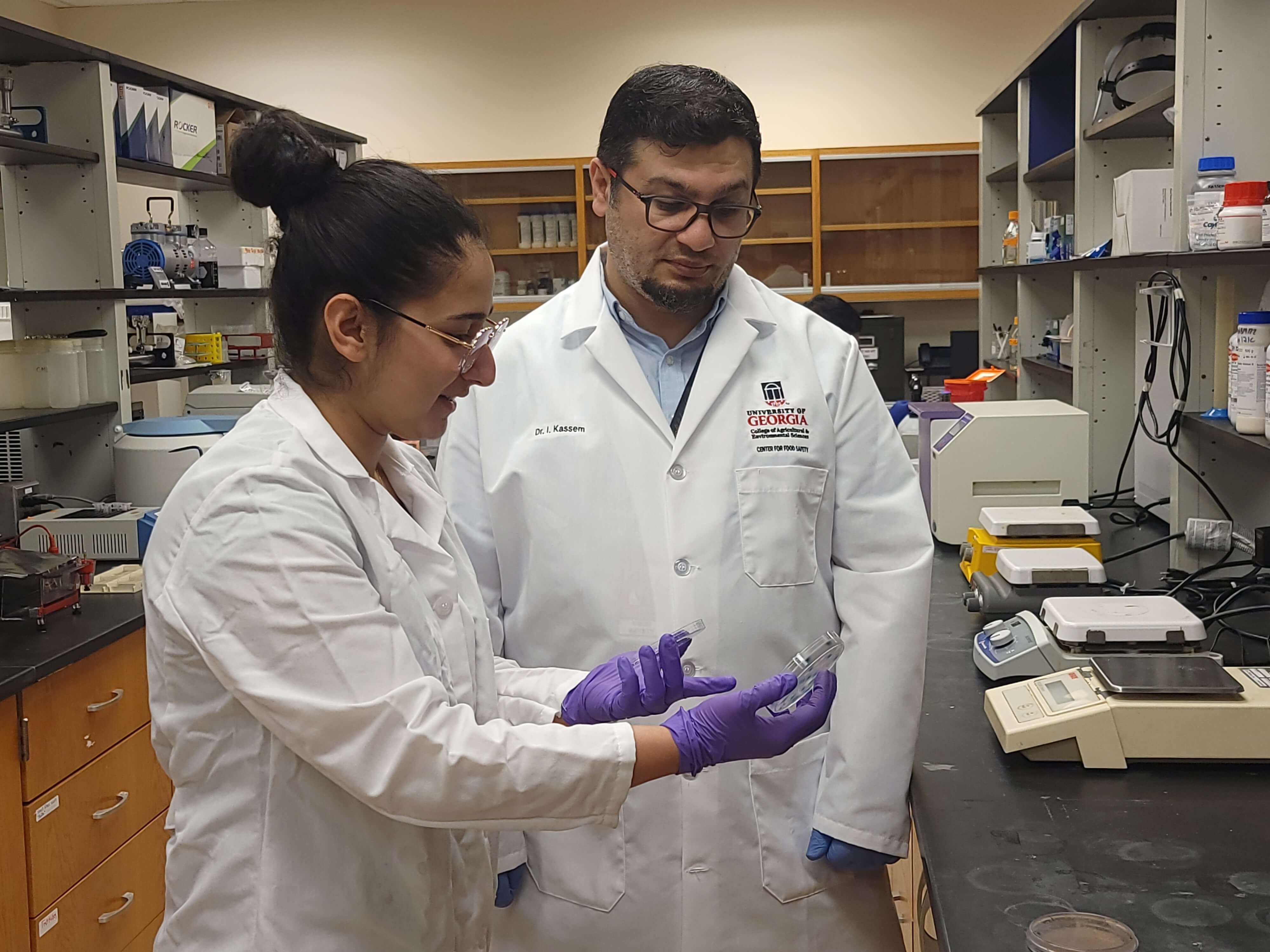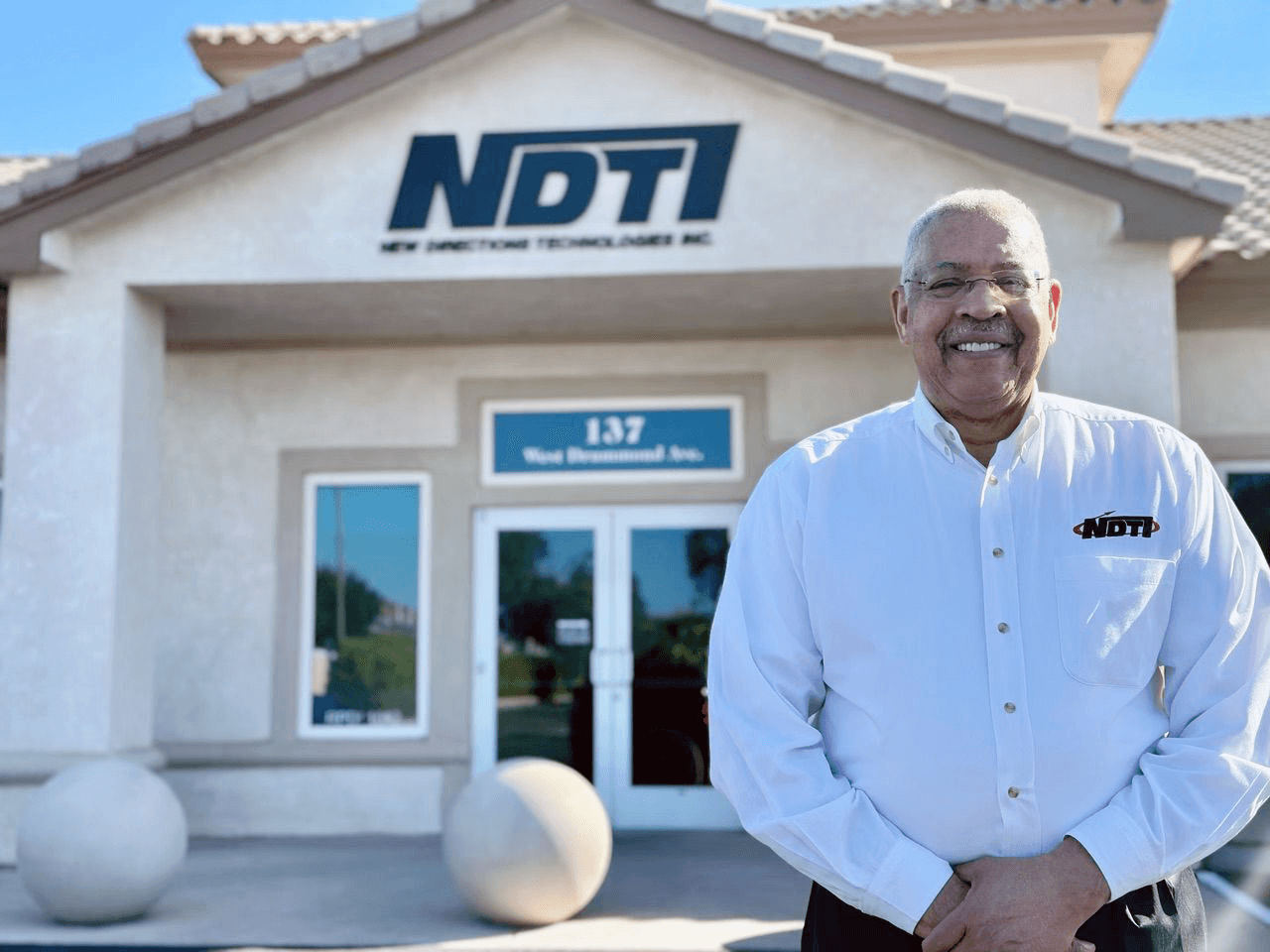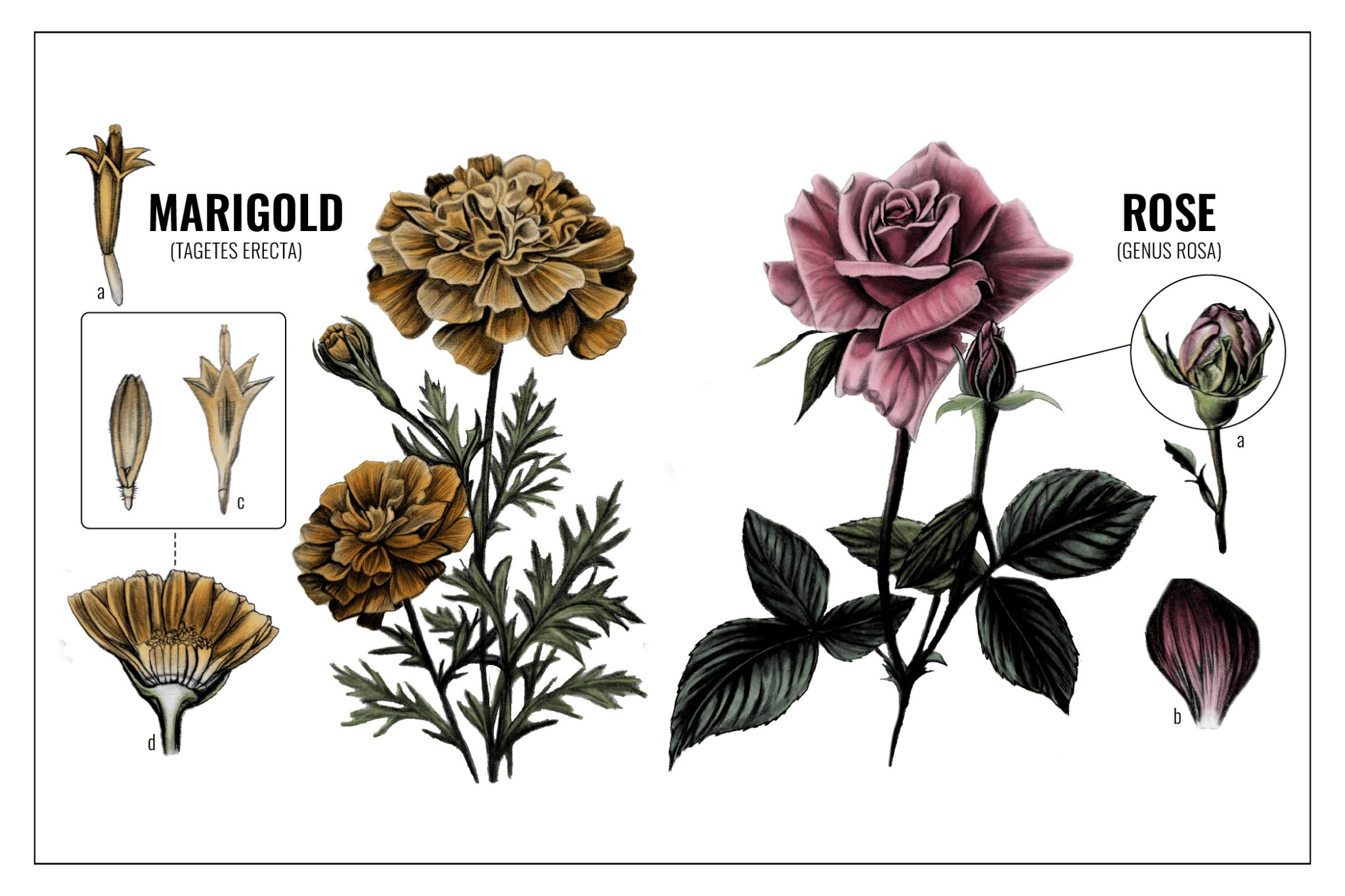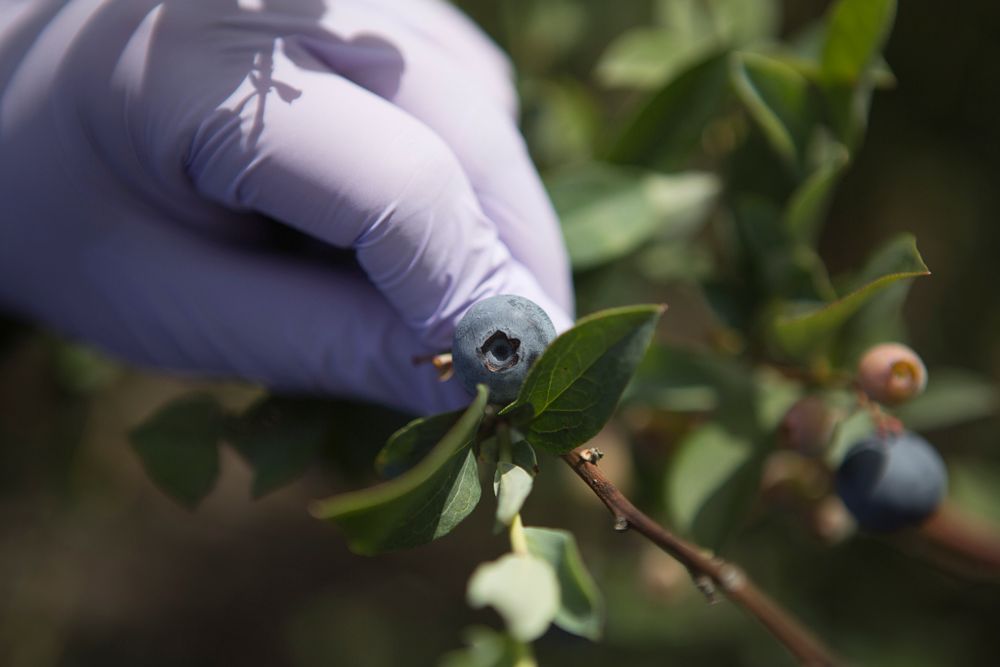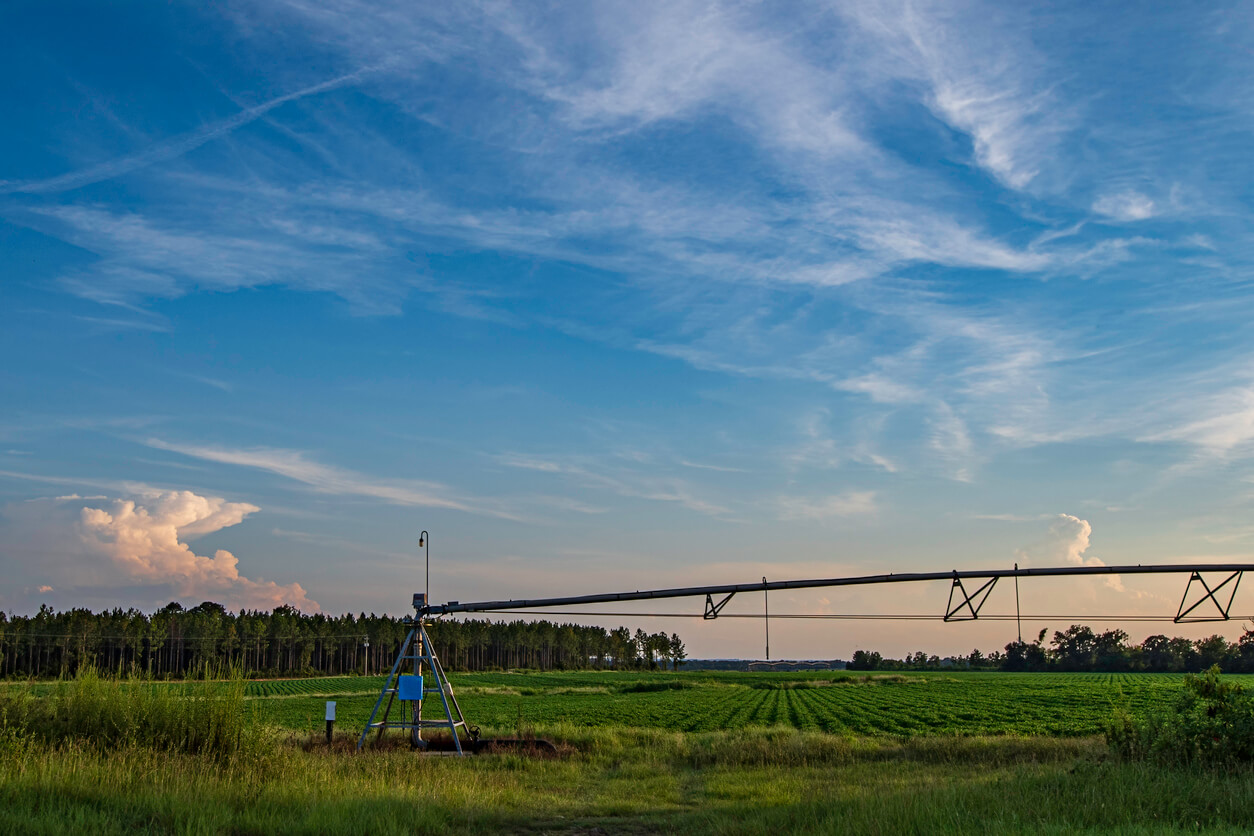
With a climbing global population that continues to grow since surpassing 8 billion in 2022, steadily rising food prices, changing consumer preferences and growing interest in more sustainable production methods, the challenges to the world’s food systems continue to intensify.
World-renowned food processing and engineering faculty in the Department of Food Science and Technology at the University of Georgia’s College of Agricultural and Environmental Sciences are training and inspiring the next generation of food scientists to blaze trails in their research and answer the questions the future of food will bring.
Seeking sustainability for food security
Climate change has an increasing influence on food production, according to the U.S. Environmental Protection Agency, but creating a more sustainable food industry requires more than adapting to changing weather patterns and their effects on agriculture. Joseph Usack, an assistant professor of sustainable food systems engineering, develops technologies to conserve and repurpose existing resources within the agrifood sector to minimize environmental impacts.
“Climate change is an existential threat that jeopardizes our food supply. Food insecurity already affects billions of people globally and is expected to worsen due to climate-related impacts, Usack said. “Food production is particularly vulnerable due to its dependency on stable weather, resource availability and steady supply chains. There are many steps between planting a seed and feeding humans, and disruption compounds with each misstep along the way.”
Secure food systems must be efficient and versatile in their use of resources, so developing technologies and practices that spare resources and promote interconnectivity within the food system are critical to reducing dependencies and increasing redundancies to minimize risks. These efforts also have the knock-on benefit of curtailing environmental impacts that contribute to climate change.
One recoverable resource Usack and his students are focusing on is an abundant byproduct of cheese and yogurt production — whey.
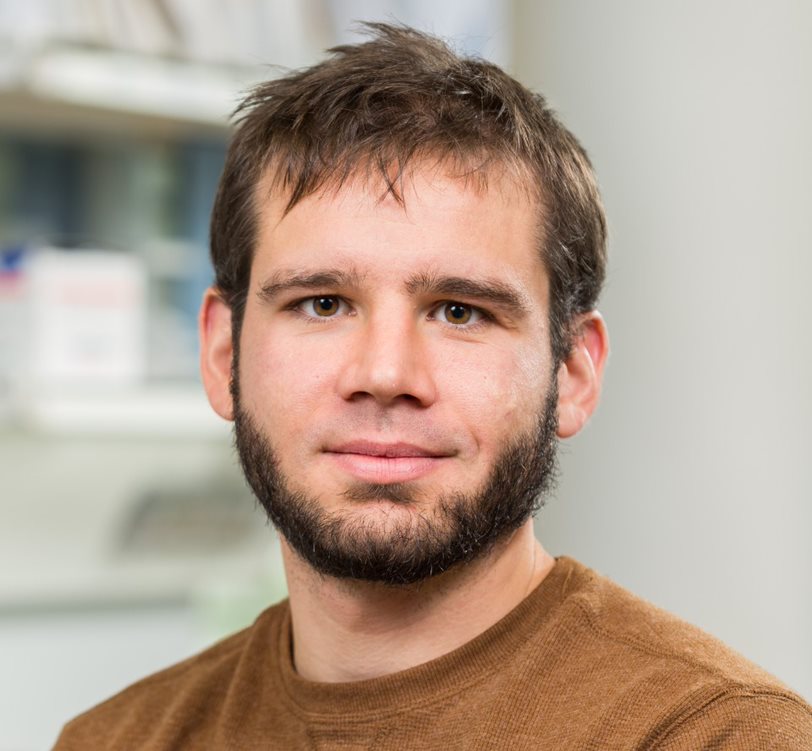
“Food companies recognize the value of whey protein, but whey lactose has been overlooked due to its limited market potential. Our lab uses advanced fermentation processes to convert lactose sugar into high-value medium-chain fatty acids, which serve as sustainable platform chemicals for applications in food processing, pharmaceuticals, fragrances, cosmetics and organic antimicrobials,” Usack said. “We also are working with the Department of Entomology to develop a human-safe pesticide and the Department of Textiles, Merchandising, and Interiors to develop replacements for petroleum-based plastics using these chemicals.”
Usack encourages his students to take a holistic approach to their work to ensure resource-use efficiency and minimal environmental impact during food production.
"So many resources and so much human effort go into producing our food — it’s sad that we consumers throw away more than a third of it. It's important to focus on food sustainably because there's an enormous opportunity to save resources and to cut down on environmental emissions,” he said.
Community development for value-added products
Kaitlyn Casulli, an assistant professor of food science and UGA Cooperative Extension process specialist, has received a $1.5 million grant from the U.S. Department of Agriculture to collaborate with farmers in rural areas across the state to reduce food waste and increase profits through value-added products.
“The grant comes from a program with USDA Rural Development to form Agriculture Innovation Centers. We named ours the Value-Addition Institute for Business Expansion, or VIBE for short,” said Casulli, who is collaborating with CAES food engineer Kevin Mis Solval and Carla Schwan, Extension food safety specialist in UGA’s College of Family and Consumer Sciences. The goal is to provide resources for farmers to move from fresh packing to value-added processing, opening up value-added markets to rural parts of Georgia.
For example, a blueberry farmer who grows and sells fresh blueberries could receive support to produce other commodities from blueberries such as jams and jellies.
“The farmer would be able to use some of the crops that might not have been suitable for fresh harvest and sale, which would eliminate food waste and provide an additional revenue stream for the farmer,” Casulli said.
Casulli hopes the educational resources the institute provides will help build community.
“I want to bring everyone together who is invested in food business development, and I think our department is at the heart of that with our expertise in product and processing development,” she said. “We have the right equipment and people who know how to run the equipment. We plan to pull together these pieces with other existing services to support food businesses, and together we will be able to help farmers access value-added markets.”
Developing fresh food tech using AI and augmented reality

Over the past several years, artificial intelligence has dominated the technology landscape, and FST researchers are using AI to assist in food processing research.
Christopher Kucha, an assistant professor of food processing and engineering and head of the Precision Food Systems Lab at CAES, uses precision sensing technologies and AI to create digital technologies, including “digital twins” and augmented reality (AR) for food processing and quality control.
“Amazon now uses AR programs to show people what the products they are buying might look like in real life, and we are doing something somewhat similar with our digital twins,” Kucha said. “We collect data on a piece of food, its processing operations, distribution and shelf life and then develop the digital counterpart of those processes or products to optimize unit operations and quality monitoring in the supply chain.”
The advent of the Internet of Things (IoT), AI and miniaturized sensing devices are reshaping the food-quality assessment landscape and offering greater confidence in the safety and quality of food products to industry stakeholders and consumers, he added.
“Digitalization technologies can virtually model a food product and continuously monitor and optimize its performance through an innovative simulation method that takes data from these IoT-based sensing devices. If these systems can be developed and made available to stakeholders and consumers, it could greatly enhance industry transparency regarding food quality,” Kucha said.
CAES doctoral student Ebenezer Olaniyi is deploying two types of hyperspectral imaging to assess the quality of pecans and evaluate their postharvest life expectancy. His goal is to further develop digital-twin technology to monitor the nuts through the value chain.
“We combine these technologies for our process monitoring and quality assessments of food products in a rapid and non-destructive manner, which deviates from the conventional methods,” Olaniyi said. “When we use the imaging system, it gives us a standard to set the products against, which is better, faster and it cuts down food waste and cost, which improves the sustainability of the food industry.”
To learn more about collaborative research and outreach work in the CAES Department of Food Science and Technology, visit foodscience.caes.uga.edu.

